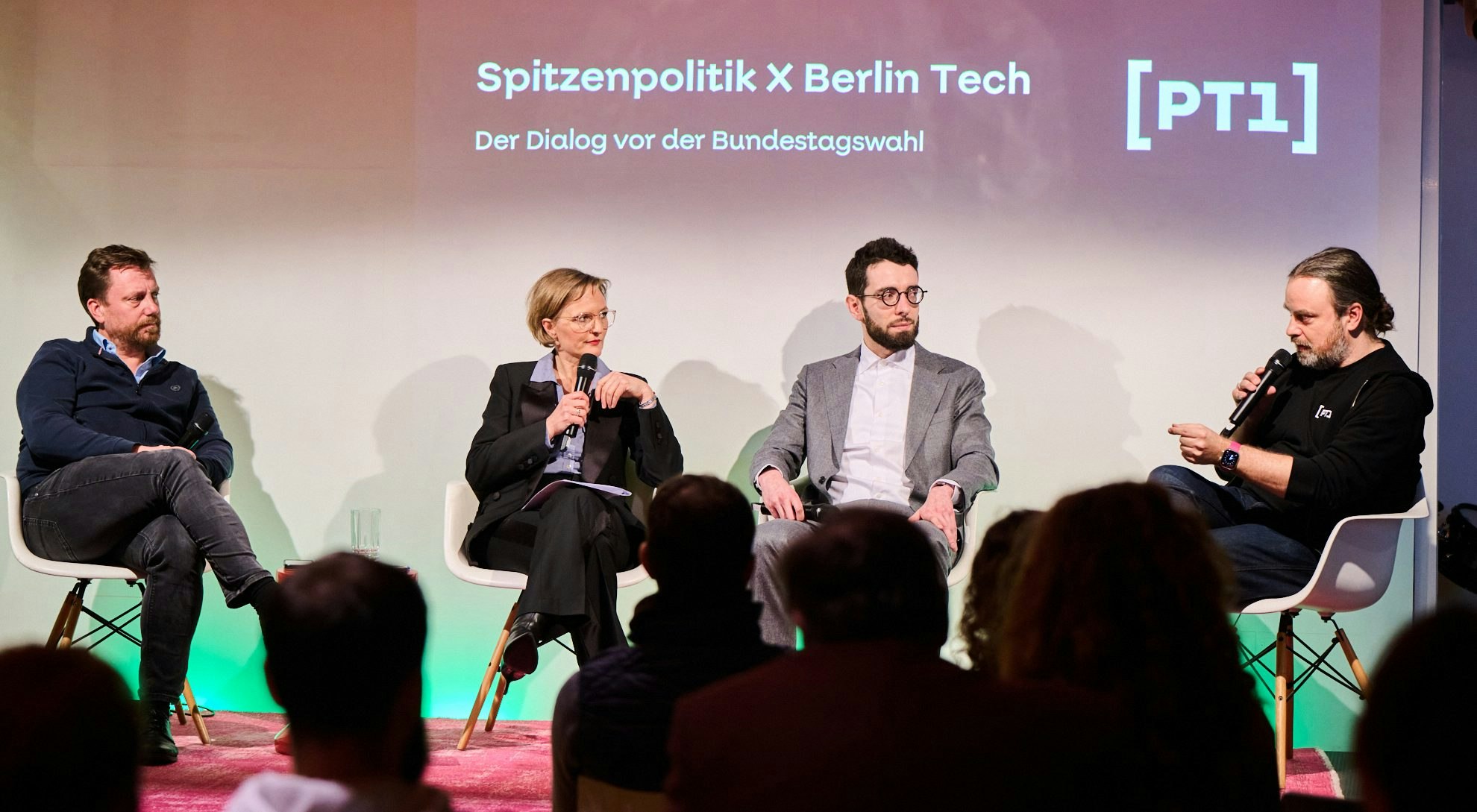As Germany heads towards a snap election on February 23, the country’s VCs are ramping up their political activism, courting sympathetic lawmakers and pushing forward the startup agenda.
While startup investors have previously sought to appear politically neutral, Germany’s declining economy, heated debates over migration policy and the rise of the far-right party AfD has inspired some VCs to speak up.
The AfD, which has been designated a right wing extremist organisation in some German states, currently sits at second place in opinion polls, amassing roughly 20% of the popular vote.
Weeks before the nation goes to the polls, VCs have organised fundraising events for pro-democracy initiatives and are publicly endorsing political parties.
PT1, a VC firm focused on real estate, infrastructure and energy, has organised a series of public events with politicians to bring politics and tech leaders closer together. Invitees include Thomas Jarzombek, a member of the governing CDU (Christian Democratic Union), Dr. Franziska Brantner from the Greens and former finance minister Christian Lindner.
Nikolas Samios, PT1’s managing partner, says he grew up in Germany at a time when politics didn’t matter as much. Europe had enjoyed decades of centrist governments and relative political stability — but that environment has dramatically changed.
“This cosy time to be non-political is over,” says Samios. “We see all this disruption happening around the world, but also in Europe, we’re seeing more and more countries with Putin-influenced, right-wing agendas. So I think it’s definitely relevant to step up, be present, talk, think and support the political game.”
Why now?
A number of factors explain VCs’ newfound political passion, says Verena Pausder, chairperson of the German Startup Association.
“Global competition is intensifying. Other regions, particularly the U.S. and China, are moving faster in supporting their tech sectors. Structural challenges like bureaucracy, a lack of growth capital, and talent shortages make it essential to push for reforms,” she says.
“In addition, many issues such as the corona pandemic, the Russian war of aggression in Ukraine and the rise of the radical right have politicised society as a whole.”

Sebastian Peck, partner at Kompas VC, agrees. He says a combination of frustration at Germany’s “anaemic economic growth that affects people in their daily lives” — and a sense that Europe is lagging behind other nations — is causing investors to become much more politically engaged than in the past.
“The idea of becoming much more politically conscious and not just standing there hoping the state will fix it certainly reflects the perception that there is a lot of political dysfunction and that you can’t just rely anymore on a political caste that will fix things,” he says. “It just doesn’t happen.”
VCs have also seen their portfolios increasingly politicised, Peck says, with startups working on sustainable technologies like low-carbon cement or green chemicals particularly exposed to changing political winds.
“Investors are actively seeking proximity to government entities and public funding bodies to navigate regulation and understand the necessary frameworks.”
The Elon effect
Some VCs say they have been inspired by Elon Musk’s deregulation agenda and influence on Donald Trump’s White House, while still criticising his unapologetic support of the AfD.
“There’s genuine admiration for how figures like Elon Musk and the broader tech elite have successfully advocated for innovation-friendly policies, creating an environment many wish we had in Europe,” says Claudius Jablonka, general partner at Palo Alto and Munich-based VC Leitmotif.
“However, this admiration for policy outcomes exists alongside deep concern.”
In September last year, the German government announced the WIN Initiative, a plan to plug €12bn of public and private capital into the startup scene over a period of ten years. The move was widely celebrated at the time, but some investors tell Sifted that Germany’s financial contribution to tech pales in comparison to what other nations are spending.
“We can admire and learn from successful tech policy initiatives abroad while firmly rejecting any association with anti-democratic movements, whether they come from Trump in the US or the AfD in Germany,” adds Jablonka.
“Our goal isn’t to replicate other regions’ paths wholesale, but to forge our own way forward that combines technological progress with democratic values and social responsibility.”
Key demands
Regardless of how VCs vote in the election, those Sifted spoke to were united on one thing: technology is key to the country’s future growth.
PT1 circulated a policy paper signed by VC firms such as World Fund, Planet A Ventures and AENU calling on the government to unlock more private capital to be invested in VC and future technologies, strengthen Germany’s exit market and reduce bureaucracy.
For example, in Germany founders and VCs often bemoan how notary documents must be signed in person. Samios cites Austria as a good example where the notary system is digitised.

“We’re not promoting a Trump, Elon Musk kind of position here. We don’t need a government agency,” says Samios, referring to DOGE. “We need a strong minister for digitalisation that has the power to change things.”
Change won’t happen, however, without a shift in mindset from politicians, says Pausder, who has been hosting party candidates such as chancellor Olaf Scholz on her podcast which she runs with founder and angel investor Lea Sophie Cramer.
What’s needed is for the government to view startups not just as small businesses, but as “future industry leaders,” and agents for economic growth.
“The next government will play a decisive role in shaping the future of Germany’s innovation landscape,” says Pausder. “My concern is that political hesitation or short-term thinking could lead to missed opportunities – speed is crucial to keep up with the US and China.”
Read the orginal article: https://sifted.eu/articles/german-vcs-snap-election/


